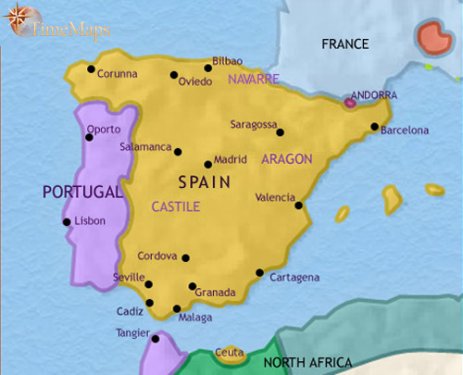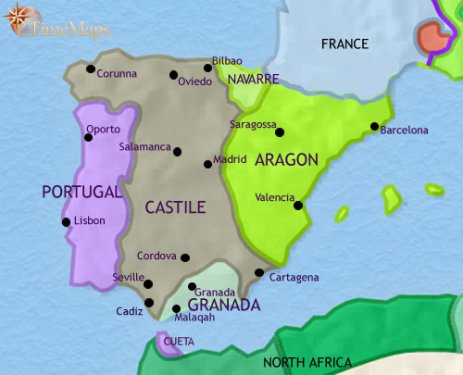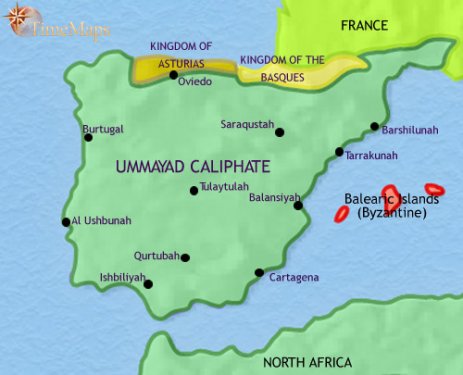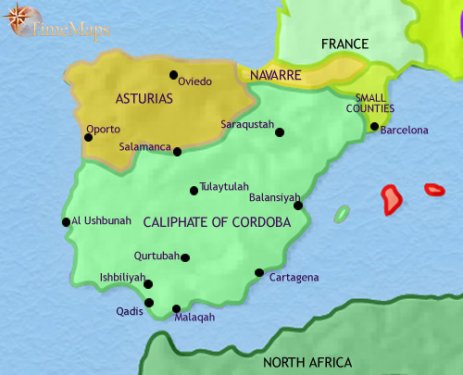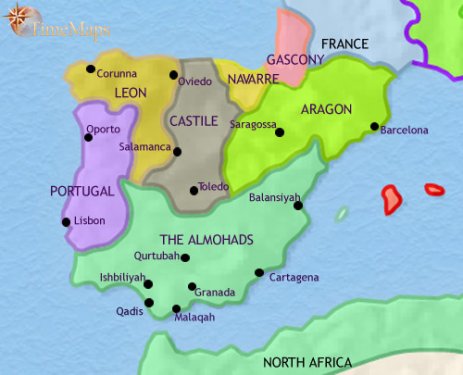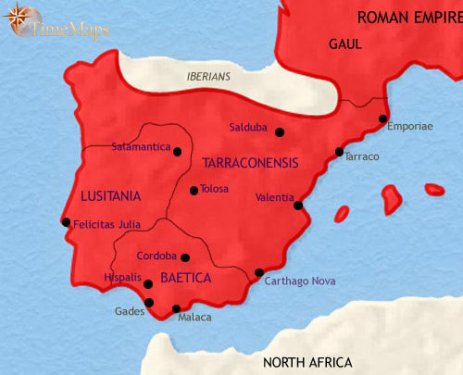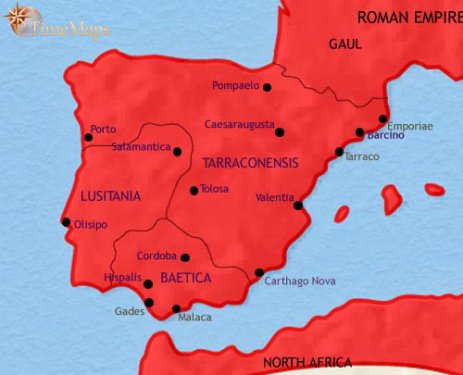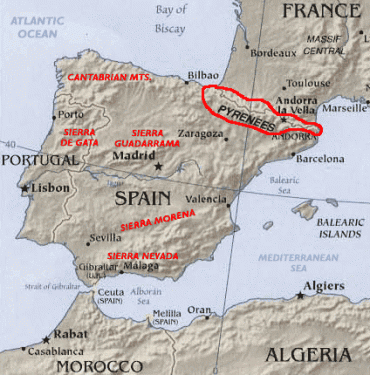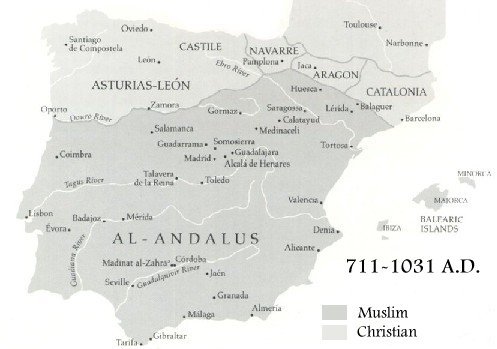-
Posts
8,466 -
Joined
-
Days Won
773
Content Type
Profiles
Forums
Events
Everything posted by ummtaalib
-
Diabetes and fasting In the name of Allah, the most Beneficent, the most Merciful. Answer Firstly, using an injection does not break ones fast. Therefore, if the diabetic patient can fast throughout the day by using the insulin injection then this will not render ones fast invalid. (Ahsanul Fatawa p.432 v.4) However, if you need to consume solid foods every few hours and have to forgo the fasts in Ramadhan, then one should keep them at another time during the year, maybe during the shorter days. Consult with a Muslim doctor if there is some way to retain enough insulin through certain diets through the duration of the fast. If this is not possible then you are considered incapable of fasting and thus it will be permissible for you to forgo your fasts and pay fidyah instead. (Maraqi Falah p.453) The fidyah for each fast is similar to how much one gives for sadqah fitr. This is to give 1.6 kg of wheat or 3.2 kg of barley or the equivalent of the above in cash (£2 – £3). (Raddul Muhtar p.532 v.2) It must be remembered if the patient somehow becomes capable of fasting again, all the missed fasts will have to be made up again, even if you have already paid fidyah for them. (Fatawa Hindiyyah p.207 v.1) Only Allah Knows Best Mohammed Tosir Miah Darul Ifta Birmingham
-
Question and Answer: Q. I always knew we can read quran and give the sawab (reward) to the deceased and I do this all the time for my late dad. Recently I was told this is wrong and the dead cant benefit from my reading. Please clarify as I’m now confused (Query published as received) A. There are numerous Ahadith to prove that the rewards of the Qur’an and good actions reach and benefit the deceased when performed on their behalf. Sayyiduna Abu Hurayrah (Radiyallahu Anhu) reports that the Prophet of Allah (Sallallahu Alaihi Wasallam) said: When a person passes away, then all his actions cease except for three: a) Sadaqah Jaariyah (perpetuating charity), b) Knowledge which he imparted and is now being benefitted from or c) a pious child who will make Dua for him. (Sahih Muslim, Hadith #: 1631) In the chapter titled “recitation by the deceased”, Imam Abu Dawood (Rahimahullah) transmitted the Hadith reported by Sayyiduna Ma’qal bin Yasar (Radiyallahu Anhu) that the Prophet of Allah (Sallallahu Alaihi Wasallam) said: “Recite Surah Yaseen upon your dead”(Abu Dawood, Hadith #: 3121) Allamah Ayni (Rahimahullah) states: The rewards of all good actions benefit the dead including Salaah, fasting, Hajj, charity, Zikr etc (Ramzul Haqa’iq) In Sahih al-Bukhari, the narration from Sayyidatuna Aa’ishah (Radiyallahu Anha) is recorded where a man came to the Prophet of Allah (Sallallahu Alaihi Wasallam) and asked him: “My mother passed away suddenly and she did not get a chance to make a bequest. I think that if she had a chance, she would have given charity. So if I give charity on her behalf, will she be rewarded and will I also be rewarded? The Prophet of Allah (Sallallahu Alaihi Wasallam) replied in the affirmative. (Sahih al-Bukhari, Hadith #: 2717) These are just a few narrations from the many that establish that reciting the Qur’an and performing good deeds on behalf of the deceased will benefit them in their graves. You should continue doing good deeds on behalf of your father, be it in the form of charity, keeping optional fasts, optional Salaah, Istighfar, Zikr or the recitation of the Qur’an etc and all of this will benefit him Insha Allah. And Allah Knows Best Mufti Suhail Tarmahomed Fatwa Department Jamiatul Ulama (KZN) Council of Muslim Theologians
-

Remember the Ummah in your Duas
ummtaalib replied to ummtaalib's topic in General Islamic Discussions
The Billowing Smoke Of Gaza Adapted from idealwoman.org While the Muslims in the west continue to enjoy the bounties of the worldly life, their brothers in Gaza, Syria, Iraq, Afghanistan, Sudan, Nigeria, Yemen, Algeria, Somalia and many other countries continue to taste the bitter realities of life. The Muslim countries and cities seem to be like defenceless prey devoured by blood thirsty predators. It was Kandahar, Baghdad, Fallujah, Sana and Mogadishu yesterday. Today it is Aleppo and Gaza. Gaza has faced more than 950 airstrikes in the past 150 hours. That is approximately one missile strike every ten minutes. This is nothing new. The Muslims of Gaza have been oppressed for decades. Many children were born and died living their 50-60 years oppressed. They saw, inhaled and consumed oppression. It is a miracle that these men and women of Gaza opted to lay down their lives instead of their Aqīdah. Imān was more beloved to them than their blood. The eternal gardens with flowing rivers and fruit laden trees were in their sight. They entered the doors of history with their lives. Their names were forever engraved on the earth with their blood. We encourage all to remember our oppressed brothers, sisters and children. Help them in anyway one can- financially, verbally, physically or emotionally. Beseech Allah Azza Wa Jalla to help our brothers and sisters. Certainly victory is from Allah and victory is but an hour of patience. May Allah help our oppressed brothers and sisters. We beg Allah to save our brothers from the Fir’aun of this time just as he saved Musa alayhis salaam from the Fir’aun of his time. Ameen. With Compliments~Darulfiqh.com -
The Fifteenth Century & The End of Muslim Rule in Al Andalus At the dawn of the fifteenth century Muhammad VII was the Amir of Granada. He was a warrior and he strengthened his army and garrisoned the border forts. The Christians viewed this with concern and in 1404 they summoned a council of war and decided to end Muslim Kingdom of Granada. An indecisive battle followed and a truce was called. After his death other rulers followed amongst intrigue and conspiracies and the Christians constantly intensifying pressure. The fifteenth century saw the frontiers of the kingdom of Granada shrinking progressively as the Christians continued to attack and wrestle away border towns. The kingdom itself was always under civil strife. Muhammad VII was the Amir in the beginning of the fifteenth century, followed by others. Abul Hasan was one of last rulers of the dying state of Granada. He was brave and courageous, he reorganised the civil and military administration, strengthened the army and prepared for a show down with the Christians. He recaptured some of the border towns which had been captured by the Castilians. Meanwhile the Christians gained strength with the unification of two states as Ferdinand (the ruler of Castile) and Isabella (the ruler of Aragon) married. The war between Granada and the Christians broke out in 1482 and lasted ten years with both sides gaining and loosing territory. At this critical time the court of Granada came to be rocked by family feuds. Boabdil (Known as Ex-Zogoiby – The Unlucky): The Last Ruler of Muslim Spain Abul Hasan had two wives, a Nasrid princess, Aisha and a Christian lady, Isabelle. Abul Hasan was attached to Isabelle and under her influence he decided that his successor should be his younger son from his Christian wife in preference to his older son, Abu Abdullah (or Boabdil, as commonly know to the world) who was the son of Aisha. Through the incitement of his mother Boabdil staged a revolt against his father. He won the support of the Arab tribes and he captured the capital. Abul Hasan fled to Malaga where his brother was the ruler and with his help recaptured the throne. Boabdil then sought refuge with the Christians and now Granada was in a state of anarchy and confusion. Abul Hasan could not cope and he abdicated in favour of his brother, Muhammad al Zaghal (Muhammad XI). He was a valiant and gallant warrior, a firm ruler and a resolute opponent of the Christians. In normal times he would have been a successful ruler, however the process of disintegration had proceeded too far. Baobdil was with the Christians and he fought against his uncle when they attacked. The Fort of Losca fell in 1486 followed by the Fort of Valez in the next year. Muhammad XI felt that resistance was useless and he fled to Morocco while Baobdil took the throne. He took the official name of Muhammad XII though unfortunately he was the very last ruler of Spain (or what little remained of it). Despite being a tool of the Christians they gave him no peace. They were determined to annex the state of Granada. They continued their attacks and captured city after city while the refugees from these cities poured into Granada creating discontentment and unrest. The Christians also provoked insurrections within Granada till finally Baobdil tried to come to terms with the Christians. The Christians however would not agree to any terms and finally Baobdil had no option but to capitulate though the terms agreed upon were kept secret. The Christians marched to Granada and occupied it in January 1492. Baobdil had to leave for Morocco and he bade farewell to Granada with tears trickling down. His mother Aisha turned to him and said, “Do not weep like a woman over what you could not hold like a man.” With him Muslim rule in Spain extending about eight centuries came to a close. The place where he bid his sad farewell came to be known as “Last sigh of the Moor”. The fall of Granada in 1492 C.E. was a tragedy of the same magnitude as the fall of Baghdad in 1258 C.E., however the tragedy of Granada was more poignant for while Muslim rule was restored in Baghdad after a short interim, Muslim rule in Spain disappeared totally. Muslims were allowed religious freedom for a few years but by 1502, Muslims had to choose either to convert to Christianity or leave Spain. 1453AD - 1648AD The marriage of Ferdinand of Aragon and Isabella of Castile in 1469 united Spain, and the two monarchs set about creating a strong centralized state. Within a few years the last Muslim state, Granada, had been conquered (1492), and the Spanish government installed the Inquisition to bring about the Christianization of the conquered territory.
-
Granada the Last Muslim State During this period of decadence and disintegration of Muslim rule in Spain when many minor lords ruled over petty principalities, Muhammad bin Yusuf bin Nasr, a lord of such a principality himself, founded the rule of the Nasrid dynasty which ruled Southern Spain for 262 years. Instead of fighting the Christians he cultivated their friendship and with their help captured Granada and the adjoining territories. During the period of 1238 to 1260, Ferdinand III of Castile and James I of Aragon liquidated the Muslim principalities of Valencia, Cordova, Seville and Murcia and after 1260, Granada was the only Muslim state left in Spain. However in spite of their patronage the Christians invaded Granada and Muhammad saved himself and his state by becoming a vassal of Castile. Thus independent Muslim rule came to an end in 1260 though Granada survived for more than 200 years as a nominal Muslim state under the vassal of a Christian state. The Muslims expelled from other parts of Spain migrated to Granada. His son and successor, Abu Abdullah (Muhammad II) enforced shari’ah law as he was a jurist. He had to face rebellion of some of the Arab chiefs and when the Christian powers once again invaded Granada, he sought the help of Abu Yusuf Yaqub, the ruler of Morocco. He landed with his forces and with his help the Christian attack was repulsed. During the reign of Muhammad III, the son and of Abu Abdullah, the Christians invaded and this time captured Gibraltar and other towns. He made a truce with them with unfavourable terms for Granada which made him unpopular. To increase his prestige he conquered Ceuta in Morocco with the help of the Christians and this in turn made Morocco incite a revolt against Muhammad III and his uncle dethroned him and took control in 1309. He in turn was overthrown by his nephew, Abul Wahid Ismail who proved to be a good ruler. During his reign he took the initiative and attacked the Christians and defeated them. Though this was big triumph for the Muslims and during his eleven years rule Granada enjoyed a spell of prosperity. He was killed in a palace revolution just three days after his victory over the Christians. The Christians had resorted to underhand means of fostering a conspiracy through their agents in Granada. Granada continued to be under Muslim rule with the Christians constantly attacking. The court of Granada had become a hotbed of intrigues and conspiracy. When Muhammad V came to power in 1354, he purged the court of all suspects by executing, imprisoning or exiling the suspects. He however himself fell prey to the conspiracy led by his stepmother. There was a palace revolution and he saved his life by flight to Morocco. His step brother, Ismail bin Yusuf occupied the throne though his mother was the real power behind the throne. He too fell victim to a conspiracy and met with a violent death. The next ruler was a tyrant and very unpopular. The Nasrid chiefs invited Muhammad V, who was in Morocco to come back and resume the throne. Thus Muhammad V’s second reign began in 1362 in the midst of rejoicing of the people. He made a peace treaty with Castille. He was a just ruler who encouraged education, established hospitals and schools and developed trade and industry. After him, his son continued the treaty with Castille however he too fell prey to a conspiracy. 1215AD - 1453AD In 1229 the Almohads abandoned Spain, and Muslim Spain became divided amongst several small emirates. This allowed the Christian kingdoms to make good progress in their "Reconquesta", and the Muslims are now confined to one state, Granada.
-
Timeline Maps of the History so far 200BC - 30BC The Romans have gradually conquered most of present-day Spain and Portugal 30BC - 200AD The whole of the Iberian Peninsula is thoroughly Romanized 200AD - 500AD Visigoths control most of the peninsula 750AD The majority of present-day Spain and Portugal now belong to the vast Muslim Caliphate, ruled from far-off Damascus. 750AD - 979AD With the replacement of the Ummayad caliphs by the ‘Abbasids in the Middle East, an Ummayad prince fled to Muslim Spain in 756 and, after a civil war, established an independent state here, commonly called the Caliphate of Cordoba (after its capital). 979AD - 1215AD The Muslim Caliphate descended into civil war after 1000, and fragmented into a number of independent emirates. These small states were unable to hold back the Christian tide, and so they invited the Almovarids, an Islamic movement from North Africa, to come to their aid (1080's). The Almoravids controlled Muslim Spain until the Almohads, another North African Islamic movement, replaced them (1147).
-
Q: Is it permissible for a diabetic to take an insulin injection whilst fasting and will it nullify the fast? A: Taking an insulin injection whilst fasting is permissible. The insulin does not nullify the fast. However, in the case where the insulin is directly injected into the stomach the fast will be nullified. والمفطر إنما هو الداخل من المنافذ (رد المحتار على در المختار ج2 ص395) وما وصل إلى الجوف أو إلى الدماغ من المخارق الأصلية كالأنف والأذن والدبر بأن استعط أو احتقن أو أقطر في أذنه فوصل إلى الجوف أو إلى الدماغ فسد صومه (بدائع الصنائع ج2 ص93) Answered by: Mufti Zakaria Makada Checked & Approved: Mufti Ebrahim Salejee (Isipingo Beach)
-
Courage! By Sister S Bemath Many of us are poor imitations of what we ought to be . . . It is a fact of life that all successful people have one trait in common—courage. Without it there is little hope for achievement and fulfilment. We can never be our true selves until we learn to be courageous. Courage enables us to face difficulty, danger or pain in a way that allows us to maintain control over a situation. We can build courage by identifying things that frighten or challenge us and thinking of strategies for coping with them. We can also build courage by remembering that nothing can harm us unless ALLAH wills it and nothing can benefit us unless ALLAH wills it. Many of us are poor imitations of what we ought to be, our actions often governed by other people's opinions—hardly a satisfactory way to control one's destiny. So what is courage and how can it transform the routine lives most of us seem to lead? It is not just mastering of fear. Courage requires us to remain steadfast in our beliefs. It asks that we stand by the convictions we express and never give in an inch, no matter what the cost. It can be likened to taking a blank sheet of paper and writing the first sentence of novel; to saying “No” when “Yes” is so much easier. It is the force which thrusts life onwards. It is to be cultivated and nurtured. If you know what you want to do with your life, take your first step forward today. Deep down most us know what we want, we simply lack the courage to take that first step, so we procrastinate. And, together with indecision, procrastination can prevent you from ever achieving anything. Once you know what you want, make up your mind to look ahead—with courage. Some people are always planning to do great things; they declare they know exactly what they want and how to go about it. Yet somehow they never get started; never get past the preparatory stage because fear enters the picture. They lack the courage to step into the unknown. If you are such a person, make up your mind to put fear behind you, to go ahead, to make decisions. When you've made your decision, it's time for action. Pluck up your courage and ACT! DON'T let yourself down. Let me give you a practical illustration. Let's assume you feel you should be promoted. You work hard and keep hoping. But that's not good enough. Your employer probably takes it for granted that you're satisfied, so it's up to you to set the wheels in motion concerning your future. Speak to your employer. Ask to consider you for a better position when one is available. Be bold. Explain why you deserve promotion. If your employer refuses even to consider your request you must either accept the situation or look for another job which will give you the opportunities you're looking for. No matter how difficult it may seem. Make the choice to live consciously. Do not succumb to that half-conscious realm of fear-based thinking, filling your life with distractions to avoid facing what you feel in those silent spaces between your thoughts. Either exercise your human endowment of courage and progressively build strength to face your deepest, darkest fears to live as the empowered being you truly are, or admit that your fears are too much for you, and embrace life as a mouse. But make this choice consciously and with full awareness of its consequences. If you are going to allow fear to win the battle for your life, then proclaim it the victor and forfeit the match. If you simply avoid living consciously and courageously, then that is equivalent to giving up on life itself, where your continued existence becomes little more than a waiting period before physical death—the nothing as opposed to the daring adventure of life. Courage, according to the Qur'aan Kareem, requires fearing nothing and no one other than ALLAH; not hesitating to act in the way which conforms the nearest to ALLAH'S good pleasure, and showing determination. Amongst the most important characteristics of the faithful are that they do not give up when faced with difficulty, and fear nothing and no one but ALLAH. They know that there is no power other than HE. This fosters courage in them, to overcome any kind of fear. An example of such exemplary behaviour is given in the Qur'aan Kareem: (It is the practice of those) who preach the Messages of ALLAH, and fear HIM, and fear none but ALLAH: And ALLAH suffices as a Reckoner. (Qur'aan 32, Verse 39) Don't give up without embracing the daring adventure your life is meant to be. You may go broke. You may experience failure and rejection repeatedly. You may endure multiple dysfunctional relationships. But these are all milestones along the path of a life lived courageously. They are your private victories, carving a deeper space within you to be filled with an abundance of joy, happiness, and fulfilment. A rose only becomes beautiful and gives fragrance when it opens up and blooms. Its greatest tragedy is to stay in a tight-closed bud, never fulfilling its potential... So, recognize your potential and utilize them. That is strength undefeatable! EISLAM
-
- 2
-

-
The Umayyad rule in Spain came to an end in 1031 C.E. With the fall of the Umayyad Caliphate in Spain the country fell prey to anarchy. Muslim Spain came to be split up into numerous small kingdoms, each going its own way and fighting each other. This period is known as “Muluk-ul-Tuwaif” (petty states). The split up kingdoms fought among themselves which weakened the Muslim hold on Spain. This provided opportunities for Christian aggression. This fragmentation of Muslim Spain paved the way for the disintegration of Muslim rule in Spain. The Al-Moravid Rule in Spain Towards the close of the eleventh century, while Muslim Spain was falling to pieces, a new power of the Al-Moravids rose to power in Morocco. With the fall of the Umayyad Caliphate in Spain the country fell prey to anarchy. The split up kingdoms fought among themselves which weakened the Muslim hold on Spain. This provided opportunities for Christian aggression and in order to prevent the Christians some of the Muslim princes of Spain sought the help of Yusuf bin Tashfin, the ruler of Morocco. He responded to the call, crossed over into Spain and defeated the Christians powers. The divided kingdoms were unable to forge a union and Yusuf annexed Muslim Spain to his empire and thus a greater part of Muslim Spain became the province of the Al-Moravid empire. He was able to reunite much of Muslim Spain. While he was alive the Christians were pushed back. He enforced Shari’ah law and was very popular with the Scholars. After years of anarchy Spain once again came to enjoy a spell of prosperity under his strong and beneficent rule. However after his death in 1106 C.E. the Al Moravid hold on Spain became weak and Saragossa was captured by the Christians in 1118 C.E. The Al Moravid rule came to an end in Spain by 1145 as the Al Mohads came to power in Africa and Spain was once again split up into petty states. The Christians raised their heads again and they pillaged and burnt many towns and the Muslim Scholars of Spain appealed to the Al Mohad ruler who came to their aid. The Al- Mohads The Al-Mohad rule was founded in North Africa in the early twelfth century. The Muslim Scholars of Spain appealed to the Al Mohad ruler Abul Mumin, for help. He sent an army under Abu Amr Musa whose brilliant campaigns led to many towns being captured. A year later Abul Mumin sent another force under his son, Abu Saeed who conquered Cordova, Almeria, Nibela and finally Granada. By 1148 C.E. the Al Mohads were masters of the whole of Muslim Spain. In the Thirteenth Century, the Al Mohad ruler Abu Yusuf Yaqub was succeeded by Muhammad Al Nasir. In 1212 C.E. the kings of Castile, Aragon, Portugal, Leon and Navarre joined by the crusaders from France, Italy and Germany marched against the Al Mohads. The Al Mohads were defeated in the battle of Hisa Al-Uqab. This battle marked the beginning of the end of the power of the Al Mohads and also the beginning of the end of Muslim rule in Spain. Al Nasir escaped to Morocco leaving Spain in a state of utter confusion. The Al Mohad rule lasted till 1269. After the Al Mohads numerous principalities sprang up in Muslim Spain and the Muslims ceased to be the dominant power in Spain. The Decline and Fall As long as the Muslims were united, they constituted the largest empire in history; when they fell victim to disunity and developed differences among themselves in the name of religion they fell from power. When the Abbasid Caliphate fell in Baghdad in 1258 C.E., the glory of Muslim rule in Spain was also over. The great Muslim empire had crumbled and split up into a number of petty principalities which lacked the strength to defend themselves and one by one, succumbed to the advance of the Christian powers until only the south of Spain remained under Muslim rule. Even then the Muslims had not learnt their lesson from history. They made no effort to unite and face the enemy. They fought amongst themselves in spite of the heavy pressures from the Christian powers who launched the “Reconquest” campaign aimed at the expulsion of the Muslims from Spain.
-
Abdur Rahman (756-788 C.E.) and the Umayyad Kingdom of Cordova The story of Abdur Rahman has to be told! (Unfortunately not in as much detail as i would have liked). It runs more like an epic if read in detail with his dramatic flight from Syria, his narrow escapes, long travels through the Libyan sands, perilous sojourns through North Africa and finally his arrival in Spain in 755 C.E. where he founded the Umayyad Kingdom of Cordova – much to the annoyance of the Abbasid Caliphs in Baghdad. (The Abbasids had moved their capital from Damascus to Baghdad). Even the Abbasid Caliph Mansur admired the youthful Abdur Rahman who eluded his enemies, traversed jungles and seas, raised armies and founded a kingdom. After meeting many adventures Abdur Rahman sought shelter in Morocco with the Berber tribe, Banu Nafoosa, to which his mother belonged. From Morocco, Abdul Rahman sent an emissary to Spain to win support in his favour. The Muslim Arabs in Spain were divided into two warring camps, the Qaisites who supported the government, and the Yemenites who were opposed thereto. The Yemenites decided to support Abdul Rahman. There were some Umayyads in Spain, and they declared for Abdul Rahman. Some Berbers in Spain also decided to espouse the cause of Abdur Rahman. The Yemenites and the Umayyads invited Abdur Rahman to Spain. In 756 C.E. with a Berbers force, Abdur Rahman landed on the shore of Spain at the port of Almonicar. Here he was joined by the Muslims of Spain who had promised to support his cause. After his arrival in Spain the battle which gave him the sceptre of royalty was fought near Cordova. He entered Cordova in triumph and occupied the official residence of the governor-general. Abdur Rahman was publicly declared “Amir” of Muslim Spain at a brief ceremony in the mosque at Cordova. His position however was precarious. The Abbasid Caliph claimed Spain to be part of his empire and he ordered the governor of Africa to annex Spain on his behalf. Abdur Rahman himself took to the field and despite the fact that his fate looked grim, he did not loose heart and after a long siege he retaliated with a desperate attack on the Abbasid supporters and won. After this he was firmly established but there was no end to revolts and his army was constantly on the march from one place to another. It has to be clear at this stage that though Abdur Rahman was the undisputed master of the kingdom, his authority did not extend over the whole of Spain. A part of the Northern territory was already taken back by the Christians before Abdur Rahman’s arrival. Abdur Rahman died in 788 C.E. after an eventful reign of thirty-two years. As the ruler of Spain, Abdur Rahman assumed the title of “Amir”. He was a wise and enlightened ruler, a man of great determination and strong will. He possessed an impressive personality. He was highly eloquent and was a fine poet. He was a skilful General; a just ruler; and a wise statesman. The way in which he became the ruler of Spain reads like a romance. He had to struggle against heavy odds, but through his courage, perseverance and iron will he succeeded in carving out a kingdom for himself and his successors in distant Spain across the seas. The Umayyad lost the empire in the east, but Abdur Rahman built an Umayyad state in the west. He organised the administration on sound lines. He established educational institutions throughout the length and breadth of the country. He constructed hostels where free boarding and lodging was provided to the students. Inns were established in all cities. Public baths were provided in all cities. He established a mint at Cordova to manufacture coins. He reconstructed the city walls of Cordova, and access of the city was provided through seven gates. Outside Cordova he built a garden place called “Muawiyat-ul-Rusafa” after the villa of his grandfather Hisham at Damascus. He constructed a mosque at Cordova, which had 193 pillars of white marble, 19 arches, and 19 big gates. A lamp made of pure gold burned permanently at the pulpit. He built an aqueduct for the supply of water to Cordova. He built canals, improved agriculture, and sponsored other beneficent activities. He introduced exotic plants in Spain for the first time. He constructed a huge bridge on the Guadelquiver river.
-
From the discourses of Arifbillah Shaykh Hakeem Muhammad Akhtar PRESENCE OF THE AULIYA (SAINTS) My dear friends, in every era when great Auliyaare alive and present, then people falsely believethem to be insignificant or not as significant ascompared to the Auliya of former times. Only when they pass away, the people suddenly realise their true status and value. To understand this point better, consider the following example; A person falls ill in Makkah. Will he sit around waiting for Hakim Ajmal Khanof India to come from his grave all the way from Delhi to treat him? Will he say’ “I am a great personality and therefore only Hakim Ajmal Khan or one of his calibre can treat me?” No! such an ill person will seek treatment at the hands of the physicians present. Similarly, Alah has created spiritual physicians in every era, and we can be treated by these physicians of our time and thereby become Bayazeed Bustãmi or Hãji Imdãdullah. In other words, we too can become what is termed as Sãhibun Nisbat, though not of the same calibre of those saints. SÃHIBUN NISBAT The actual object is to inculcate Taqwa, to gain the Pleasure of Allah, to shun sins and to become His truly obedient servants. This will link us to Allah and this is what is termed as Nisbat. People often ask; “Who is a Sãhibun Nisbat?” The reply to this question in the words of the Qur’ãn is; “Those who have Imãn and have Taqwa (piety).” So if a person has inculcated piety after having embraced Imãn, he is a Wali, a Sãhibun Nisbat, a saint, i.e. one who has connected himself to Allah. Shaykh Ashraf Ali Thãnwi ® used to say; “We all have Imãn. Now we only have to inculcate Taqwa, and we will become Sãhibun Nisbat.” BASIC REQUIREMENTS OF A SÃHIBUN NISBAT The Auliya of the Silsilãs (chain of various sufi orders), the Chishtiya, Suharwardia, Qadria and Naqbandia are unanimous that there are three basic requirements of becoming a Sãhibun Nisbat. The first of these requirements is for us to connect ourselves to another Sãhibun Nisbat. One lamp is illuminated or lightened by another lamp. Therefore one must place his heart close to a heart which is already burning brightly. “This fire burns not on its own, It is caused to burn by another flame.” Khwaja Azizul Hasan ® says; “The characteristic of fire and the characteristic of the love of Allah is the same. Fire burns from house to house and the love of Allah from heart to heart. There is a pre-condition for the fire of the love of Allah to spread from one heart to the next. The un-illuminated heart must be attached to the heart which is burning brightly.” SAINTHOOD Another question arises; Has Allah closed the doors of Sainthood? People often wonder as to whether it is still possible for us to emulate our pious predecessors and become saints like them? Has Allah closed the doors of sainthood just as He has closed the doors of Prophethood? The answer to all the above questions is NO. By Allah! Even today the roads leading to sainthood are all open. From TarbiyatusSaalikeen Shaykh Mufti Zubair Dudha Islãmic Tarbiyah Academy
-
Regarding the following du'a on being praised found online: اللهمَ اجْعَلْنِى خَيْرًا مِمَّا يَظُنُّونَ وَاغْفِرْ لِى مَا لَا يَعْلَمُونَ وَلَا تُؤَاخِذْنِى بِمَا يَقُولُون Allahumma-j'alnee khayran mimmaa yadhunnoon wa-ghfir lee maa laa ya'lamoon wa laa tu'aakhidhnee bi maa yaqooloon. O Allāh, make me better than what they think of me, and forgive me for what they do not know about me, and do not take me to account for what they say about me. It is stated on these sites that: Alhamdulillah on enquiring, the following reply was sent by Mufti Zubair Dudha of the Islamic Tarbiyah Academy
-
hmmm lets see what i can get here...ok I'll forgive (whatever it is thats you're asking forgiveness for) if you..........oops gota go, I'll get back later
-
Here are five reasons why sincerity matters in everything we do...... See Here
-
Back To Spain Unfortunately squabbles within the Arabs surfaced and instead of the Arabs putting a united front against the enemy, started fighting amongst themselves. Animosity rooted from pre Islamic times between the Kelbites/Yemenites and the Qaisites or the Northern and Southern Arabs was contained during the time of the Prophet Muhammad sallallaahu ’alayhi wasallam and the four Caliphs. However it surfaced under the Umayyadsa and it was taken to whichever countries were conquered and Spain was no exception. Then there were the Berbers who revolted in North Africa which had its repercussions in Spain. The Berbers in Spain also rose in revolt against the Arabs. The Berbers were successfully routed however the Syrians with whose help the Berbers were defeated rose against Abdul al-Malik the governor and took power in 741. Civil war broke out. In 747 the bloody Battle of Secunda was fought between the Qaisites and the Yemenites. Fall of the Umayyads The years 743 and 744 C.E. were years of anarchy. In less than two years three princes sat on the throne. Where before the Umayyads were a united family, now they began to fight among themselves and this weakened the foundation of the Umayyad rule. Coupled with the anarchy, the end of the Umayyad rule was near. The Battle of the Zab in 750 C.E. between the Ummayads and the Abbasids where the Umayyad forces were defeated saw the end of the rule of the Umayyad Dynasty. Power was transferred to the Abbasids with Abu al Abbas as the new Caliph. He claimed descent from Abbas, the uncle of Prophet Muhammad sallallaahu ‘alayhi wasallam. He began his reign by a virtual genocide of the Umayyads. Many were hounded out and killed. The idea was to create an atmosphere of non tolerance of any opposition. One of the lucky ones to escape was Abdur Rahman, a grandson of Hisham. He founded the Umayyad Kingdom of Cordova and insha Allah details will follow.
-
From Spain, into France After the death of As-Samh and the defeat at Toulouse, the next offensive into France was in 725 C.E. The Muslims carried out raids up to Rhone and Saone however they stopped there when Anbasa, the governor was killed and his deputy withdrew the army from France. After the death of Anbasa, a state of anarchy prevailed in Spain and there were five governors in less than five years. Hisham was appointed governor in 730 C.E. and Muslims once again resumed the conquest of France. This time they penetrated deep into France and their conquests included Lyons, Macon etc however in the counter attack by the French the Muslims had to withdraw from these cities. Abdur Rahman al- Ghafiqi was appointed as the next governor and he was next to march into France. After the capture of the city of Arles and then Bordeux, the Muslims overran Burgundy and finally the cities of Lyons and Sens. The French asked the aid of Charles Martel of Germany and they assembled a large force to oppose the Muslims. In 732 C.E. the Muslims suffered defeat and Abdur Rahman fell fighting. The Western Historians regard this defeat as the turning point in the history of Europe which halted the advance of Islam. In 734 C.E. the Muslims once again crossed into France and this time took Aragon and Navarre and thereafter the city of Avignon was taken after a short siege. Other campaigns followed under the next governor, Uqba, before the French forces advanced and fought the Muslims. The French resorted to “scorched earth policy” which destroyed many cities which had prospered under the Muslims. In the meantime civil war broke out in Spain and the administration was paralysed. The French launched an offensive in 751 C.E. and they took cities held by the Muslims. There was no help forthcoming from Spain and only the city of Narbonne was left to the Muslims. The French besieged it with all the sources at their command, and captured the city which ended the Muslim occupation of France. According to “The Story of Islamic Spain” by Syed Azizur Rahman, “The invasion of France was an exercise of futility as it left no impact of any significance.”
-
Umar b Abdul Aziz 717-720 C.E. He was the cousin of Sulaiman. His mother was the grand daughter of Umar bin al Khattab, the rightly guided Caliph and Umar bin Abdul Aziz aspired to follow the footsteps of his illustrious great grandfather. He was a devoted Muslim and he set the example of living the Islamic way of life. He enjoined simplicity and austerity in all the affairs of the state and he was very particular in the use of the money from the “bait-ul-maal”. He returned all the property which had been confiscated by his predecessors to the rightful owners. During the reign of Umar bin Abdul Aziz, the Muslim forces led by As-Samh crossed the Pyrennese, and overran the southern province of France. The following map shows Spain and France with the Pyrenees mountain range forming a natural border between the two countries. The Muslim forces advanced to Toulouse, the capital of Aquittaine, where a bloody battle was fought in which As-Samh was killed and the Muslims were defeated. Thereafter the command was taken over by Abdur Rahman, who evacuated the Muslim forces from France. He was poisoned to death at the age of thirty-nine. In spite of his rule lasting barely three years, he lives in history as the ideal Muslim ruler.
-
Muslim Spain was not a single period, but a succession of different rules. As we have seen, Spain was conquered during the rule of Caliph Al Waleed (of the Umayyad dynasty)and he was succeeded by his brother Sulaiman who recalled the conquerors back and Abdul Aziz, the son of Musa and governor of Spain, was killed. In the year 750 C.E. the Umayyad rule came to an end and the Abbasid Dynasty took control with Abu Abbas As-Safah as Caliph. The Abbasid period lasted from 750 to 1258 C.E. and is divided into two periods, the Early Abbasids and the Later Abbasids. Spain (a greater part of it) also came under the rule of the Al Moravids and the Al-Mohads before Muslim rule declined and finally ended in 1492. What will follow (insha Allah) will be highlights of the history of Muslim Spain under the various rules. Insha Allah the next post will cover Muslim Spain during the Caliphate of Umar bin Abdul Aziz, one of the most pious and inspiring of the Umayyad Caliphs.
-
Conquerors of Spain Recalled Having consolidated the Muslim rule in Spain, Musa proposed to cross into Europe, and return to Damascus after conquering Europe. However Caliph Al Walid did not approve of such an ambitious plan. The Caliph Al Walid died in 715 C.E. after a rule of ten years. He ranks high among the empire builders of Islam. Under him the Muslim empire had come to extend from Sind to Spain, spread over three continents, Asia, Africa, and Europe. Sulaiman (715-717 C.E.) Sulaiman, the new Caliph had differences with Al Walid. When he attained power he reversed the policies of Al Walid and those who had found favour with Al Walid came under cloud, while those who were out of favour with Al Walid came into power. Musa and his brilliant lieutenant Taariq, the conquerors of Spain, were summoned to Damascus and there disgraced, humiliated and condemned to live in obscurity and poverty. In 716 C.E., Abdul Aziz, the son of Musa who was appointed as the Governor of Spain, was busy in his dawn prayer when he was stabbed to death by a hired assassin. Even though Taariq bin Ziyaad and Musa bin Nusair were recalled, Muslims were rulers in Spain for a further 750 years.
-
15 Ways to Kick Bad Habits Few things are more demanding than eliminating bad habits, since they are part of our daily routines and personality. It takes days of patience and practice to break old habits. However, the good news is, Ramadan offers a perfect and natural environment for moral training. Interestingly, researches from “positive psychology” (scientific study of successful people) have repeatedly shown it takes 30 days to kick a bad habit and develop a new one. In addition to the physical discipline in the 30-day boot camp of Ramadan, the increased spiritual exercise and connection with Allah, can transform your habits for life. Try these proven techniques for a successful positive change in your habits (during Ramadan and beyond!): 1. Acknowledge and identify your bad habits: First step is to admit you need to change. If you are in a state of denial, you won’t recognize that you have a bad habit to change. 2. Pick a habit for 30 days: Prioritize your bad habits and focus on one for 30 days. Take a 30-day trial to re-condition your habits. If you are committed to changing at least one habit every month, you will see remarkable results, Insha'Allah. 3. Strategize: Look at all the things that might prevent you from breaking your habit and try and find a way around them, for example if you want to get up for Fajr, then look at the things that will prevent you from waking up, eg, -switching off your alarm clock and going back to sleep , for that you can put your clock away from you so that you will have to get out of bed to turn it off 4. Remember, Allah loves those who commit mistakes and repent: Prophet Muhammad said: “By Him in Whose Hand is my life, if you were not to commit sin, Allah would sweep you out of existence and He would replace (you by) those people who would commit sin and seek forgiveness from Allah, and He would have pardoned them.” 5. Intention & plan to change: “If you fail to plan, you plan to fail.” A healthy process of change in character requires a gradual pace, which entails planning. Develop concrete milestones to measure your progress. 6. Replace a bad habit with a good one: Completely eliminating a habit is more challenging than replacing it with a more productive habit. Moreover, it’s crucial to replace the lost natural needs, such as the need to socialize and to be entertained with something healthy. For instance, it’s easier to replace or balance your addiction to TV with a physical workout or reading, than to suddenly remove the TV from your life. Interestingly, Prophet Muhammad, the greatest ‘psychologist’ of humanity, illustrated this principle in these words: “Fear Allah wherever you may be; follow up an evil deed with a good one which will wipe (the former) out, and behave good-naturedly towards people.” [At-Tirmidhi] 7. Change your environment: Resist the negative peer pressure by finding a better company of friends. Collective action to change is very powerful. Prophet Muhammad (Sallalaahu alaihi wasalaam) explained this peer pressure effect with this analogy: “A good friend and a bad friend are like a perfume-seller and a blacksmith: The perfume-seller might give you some perfume as a gift, or you might buy some from him, or at least you might smell its fragrance. As for the blacksmith, he might singe your clothes, and at the very least you will breathe in the fumes of the furnace.” [sahih al-Bukhari & Muslim] 8. Exercise (physical and spiritual): A habit of regular physical exercise is obviously important for lasting weight loss. But you may not realize that exercise helps in eliminating a number of bad habits. For example, among smokers who become competitive runners, for example, over 80% give up smoking. Moreover, exercising your will power (struggle to fight temptations) for 30 days helps you kick all kinds of bad habits and form new good ones. Willpower is like a muscle; the more you exercise it, the more you strengthen it. 9. Think of yourself as a changed, different, new person: This simple psychological shift in your thinking about your own image can do wonders. Tell yourself, “I can’t continue this ill-behaviour. I am better than that. I am stronger. I am wiser.” 10. Reward success: The most fundamental law in all of psychology is the “law of effect.” It simply states that actions followed by rewards are strengthened and likely to recur. Unfortunately, studies show that people rarely use this technique when trying to change personal habits. Setting up formal or informal rewards for success greatly increases your chances of transforming bad habits into good ones, and is far more effective than punishing yourself for bad habits or setbacks. As Muslims we should also remember that the ultimate reward is Allah’s Pleasure and Paradise in the Hereafter. 11. Tell someone about your effort to change if it helps: He or she may keep you on track. 12. Resolve to continue on and follow up: Giving up bad habits or learning good habits requires regular maintenance and determination. It is a long, ongoing process, also known as “Tazkiyyah” in Islamic terminology. It’s more difficult than the first few steps of change. (“How many times have I dieted, for example, only to gain the weight back?”) 13. Remind yourself of death and hereafter often: “Remember often the terminator (or destroyer) of all the pleasures ,” the Prophet once stated. [At-Tirmidhi.] 14. Develop a relapse strategy: How do you ensure not to return to your bad habit you are trying to change? Some people donate money to a good cause every time they return to sinning or a bad habit. This reminds them of the ‘cost’ of going back to old bad habits. Others try physically demanding acts to deter them from reverting to old ways. 15. Ask Allah for help: Last but not least, make Asking for Allah’s Help an integral part of the overall change process. Ask for Allah’s Help before, during and after every attempt at kicking a bad habit. Do so sincerely, even begging and crying, like a child does when he or she really wants something. Allah is Ever-Willing to Help and to Respond to our needs, but it is us who must take the first step towards Him. “And whosoever is conscious of Allah and keeps his duty to Him, He (Allah) will make a way for him to get out (from) every (difficulty), and He will provide him from (sources) he could never imagine.” [Quran 65:2-3] A few extra tips - Start with small easy goals and then target the more difficult ones. - If the goals are too big, try and break them down and do a part every month. -These tips can also be used to inculcate good habits. islaaminfo
-
The Chaining of Shayateen (Devils) During Ramadan Answered by Ustadha Shaista Maqbool Question: Assalamu alaikum. I was recently fortunate enough to spend some time in Makkah during Ramadan. I had a bad dream (I will not go into any detail) but was surprised as I previously understood bad dreams to be from shayateen and good dreams from Allah SWT. How is it possible to have a bad dream if the shayateen are locked away in Ramadan? JazakhAllah khair. Answer: Wa’alaikum assalaam warahamtu Allahi wabarakatuh, May Allah ta’ala accept your Ramadan. The Prophet peace and blessings of Allah upon him, said, “When Ramadan enters the doors of the Heavens are opened, the doors of Hell are closed, and the shayateen are chained.” (Bukhari, Muslim, and others) However, because sins and other evil occurrences related to the devil still go on during Ramadan, scholars interpreted the last part of the hadith “the shayateen are chained” in different ways. 1. It refers to those shayateen that try to stealthily listen to the reports of the Heavens. 2. It means that the shayateen are not able to incite the Muslims in Ramadan to the same extent they can at other times so they become “as though” they are chained. 3. “Shayateen” here refers to some of them, namely the intensely evil ones amongst them. 4. It means the lessening of evil during Ramadan. This is because even if all of them are chained, there will still be evil since evil has other sources e.g. immoral persons, vile traits, and evil people. 5. It means they are chained for certain things, not everything and for certain people, not all. (Ibn Hajr, Fath al-Bari and Imam Nawawi, Sharh Muslim) InshaAllah that clarifies your question. BarakAllahu feekum. Wasalaam, Shaista Maqbool Checked & Approved by Faraz Rabbani
-
Question It is said that the Shayateen are locked away during Ramadan. If this is the case, then how can they still influence us during our prayers, by making our minds wander, etc.? And why is there still mischief all around us, even during this blessed month? Answer According to some Muhadditheen, during Ramadaan only the big Shayeteen are chained. The mischief is then perpetrated by the small Shayateen. According to other Muhadditheen, all the Shayateen are chained, the big and the small. The mischief during Ramadaan is then due to the habits of a person which he built up over a period of time. and Allah Ta’ala Knows Best Mufti Ebrahim Desai FATWA DEPT.
-
The Prophet peace and blessings of Allah upon him, said, “When Ramadan enters the doors of the Heavens are opened, the doors of Hell are closed, and the shayateen are chained.” (Bukhari, Muslim, and others) Explanation Sheikh-ul-Hadeeth, Moulana Zakariyya (rahmatullaahi ‘alayh) writes in his famous book, Fadhaail-e-A’maal, under the commentary of the Hadeeth in question, that there can be two explanations for this. The first is that it could be that only the rebellious and chief Shayaateen are chained and thrown into the oceans. In this case, the evil factors that instigate human sin during Ramadhaan will be the smaller shayaateen that are with man all the time. The second is that although all the Shayaateen are chained, some people become so accustomed to sinning during the other months of the year, that when Ramadhaan arrives, they sin out of habit. Maulana Ashraf Ali Thanvi rehmatullah alayh says, the motivator (i.e the Shayateen) being chained does not necessitate that the disobedience will completely fade away, since the other motivator (i.e the Nafs) is still free. In this month Nafs will motivate one towards disobedience, although with lesser force since it is alone.
-
The Fate of the Conquered Biased historians have bemoaned the ruin of Spain, however historians with an unbiased approach think otherwise. Dr J.A. Conde, has stated: “The conditions imposed on the conquered nation were such that the people found consolation rather than oppression in the presence of the conquerors.” The conquered were not forced to live in ghettos nor were they taken as slaves. They were not prevented from following their faiths and were not forced to convert. Their churches and places of worship were safe as were their possessions and properties. They were not banned from earning a living and could work in the civil service of the Muslim rulers. Jews and Christians were able to contribute to society. Dr. J. A. Conde says, “ But there was yet more: the fidelity of the Arabs in maintaining their promises, the equal handed justice which they administered to all classes without distinction of any kind secured them the confidence of the people in general, as well as of those who held closer intercourse with them: and not only in these particulars, but also in generosity of mind, and in amenity of manner, and in hospitality of their customs, the Arab were distinguished above all other people of those times.” It has to be mentioned that in some campaigns a few churches used for military purposes were either damaged or destroyed, however they isolated instances because the Muslim leaders were quick in controlling lawlessness, arson and pillage. Many cities were submitted voluntarily and they were treated with consideration and even generosity. The Christians and Jews were permitted to have their own district governors and judges who administered their own laws. However as subjects of the Muslim government they were required to pay Jizia (tax) and this tax was levied on all able-bodied male adults. The women and children, the old, the sick, the blind, the beggars and the priests were exempt from it. As for the Jews, Muslim rule was a haven of security and prosperity. The Gothic nobility were treated with generosity. The Serfs who were exploited for centuries by the Romans and the Goths continued to work in the fields; not as bounded labour but as free tenants. The slaves bought their redemption from slavery by embracing Islam. All Historians are unanimous in their acknowledgement of the unique cultural role of the Spanish Muslims. While the rest of Europe was shrouded in darkness, Muslim Spain was a shining example of an enlightened civilisation. Many cities sprang up. Agriculture with sophisticated irrigation systems, architecture, science and literature were all advanced in Spanish cities. While the rest of Europe’s cities were filthy and wreaking with diseases, the Spanish cities were hygienic and healthy places to live with many public baths scattered around cities. Muslim craftsmen in Spain were talented. They excelled in the craftsmanship of leather and in making fine textiles. In the late 800’s glassmakers in Cordova discovered how to make crystal and exclusive jewellery was crafted. Spain became a centre of secular knowledge with scholars in every Spanish city. Universities were set up in Granada and many libraries were opened around Spain. Stanley Lane-Poole says, “Whatsoever makes a kingdom great and prosperous, whatsoever tends to refinement and civilisation was found in Muslim Spain.” (The Story of Islamic Spain, page 34)
-
The Jews in Spain Regarding the Jews in Spain of whom there was a substantial number, their en mass desertion was one of the reasons of the rapid success of the Muslims. Their lot was a miserable one in Spain. They were not permitted to occupy any public office to employ slaves. A Gothic King had ordered compulsory baptism of the Jews which resulted in their migration to Africa. When they planned a revolt with the help of their brethren across the Straits their plan leaked out and their property was confiscated and their children sold in slavery. Thus the Muslims were seen as God-sent deliverers. They collaborated with the Muslims who put their trust in them and this opened doors to many cities. Certain cities like Cordova, Granada etc. were actually left in charge of the Jews as the Muslims proceeded further. “The Jews had much cause to complain of the Christian rule under which they had been grieviously oppressed and plundered. They not unnaturally regarded with favour an invasion headed by Semitic warriors of their own kindred, which promised to avenge them on their oppressors and increase their influence” (The History of Islamic Spain, Syed Azizur Rahman) In 712 CE Musa bin Nusair (with 18000 men) joined Tariq in Spain. Within two years, between them they had conquered the whole of Spain. They had crossed the Pyrenees and began carrying out campaigns in the South of France.


